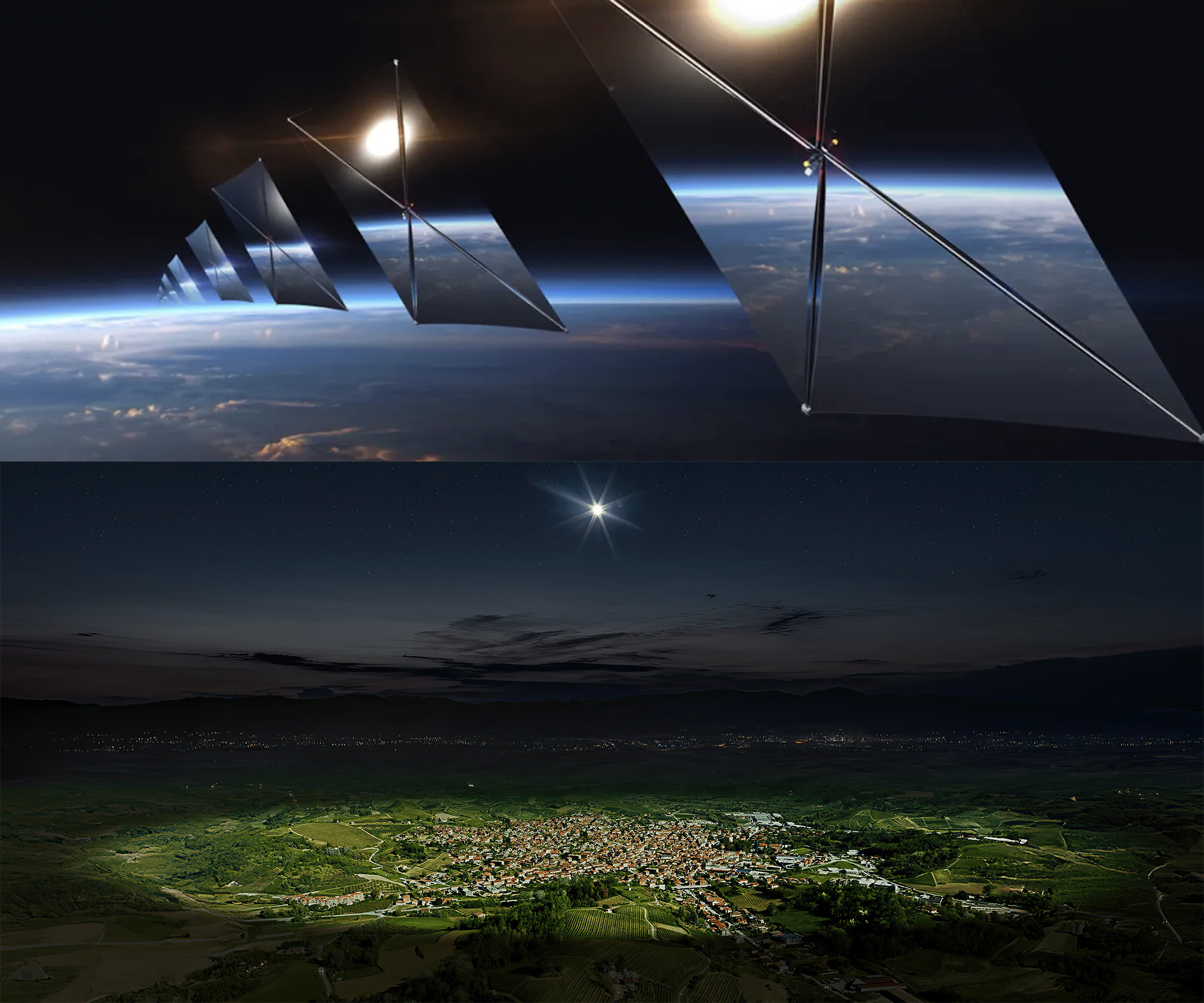A new startup, Reflect Orbital, is generating significant controversy with its plan to launch a vast array of mirrors in space designed to reflect sunlight down to paying customers. The proposal has raised alarm among astronomers and environmental advocates who fear the potential ecological and astronomical consequences. Reflect Orbital began accepting reservations for its “spots of light” in August 2024, aiming to tap into the burgeoning $286 billion satellite market.
The company plans to operate approximately 4,000 satellite mirrors, with a demonstration craft measuring 60 by 60 feet scheduled for launch in April 2026. This endeavor follows a $1.25 million contract awarded by the U.S. Air Force and a $20 million Series A funding round, which Reflect claims will contribute to enhancing national defense.
Potential customers range from industrial agriculture to luxury brands seeking to create unique promotional experiences. Reflect Orbital has reported receiving over 260,000 applications from individuals in 157 countries interested in its service. The company touts its offering as a novel solution for various industries, although the pricing details remain undisclosed.
Concerns from the Scientific Community
However, the scientific community is expressing serious concerns about the implications of such a venture. Astronomer John Berentine from the Silverado Hills Observatory noted that the mirrors would produce a beam of light significantly brighter than the full moon, potentially disrupting wildlife and affecting broader areas through atmospheric scattering.
The deputy executive director of the Royal Astronomical Society in the UK, Robert Massey, emphasized that the project could have catastrophic effects on astronomy, stating, “The central goal of this project is to light up the sky and extend daylight.” Massey further explained that the astronomical community shares a collective concern about the potential ramifications of Reflect Orbital’s plans.
In response to the criticism, a spokesperson for Reflect Orbital assured that the reflections would be “highly localized” to a 5-kilometer radius and would only last for a finite period. During the demonstration, observers at specific test sites will reportedly see the reflections as bright moving stars, with the ground illuminated by a soft, moon-like glow.
Ethical and Regulatory Questions
The proposal raises ethical questions regarding who has the right to deploy such technologies that could affect the entire planet. As Reflect Orbital’s mirrors are intended to orbit in a sun-synchronous path, they will inevitably cover various regions of the Earth. This aspect has led to debates about the regulatory frameworks governing space usage and commercial interests.
As technology advances and the demand for satellite services increases, the implications of such commercial endeavors are becoming increasingly complex. Reflect Orbital’s initiative exemplifies the potential for innovation in space but also highlights the urgent need for dialogue between entrepreneurs and the scientific community to address the broader impact of such ventures.
The discourse surrounding the deployment of space mirrors underscores the balancing act between technological progress and environmental stewardship. As Reflect Orbital moves forward with its plans, the intersection of commercial interests and scientific integrity will likely remain a topic of intense discussion among stakeholders worldwide.







